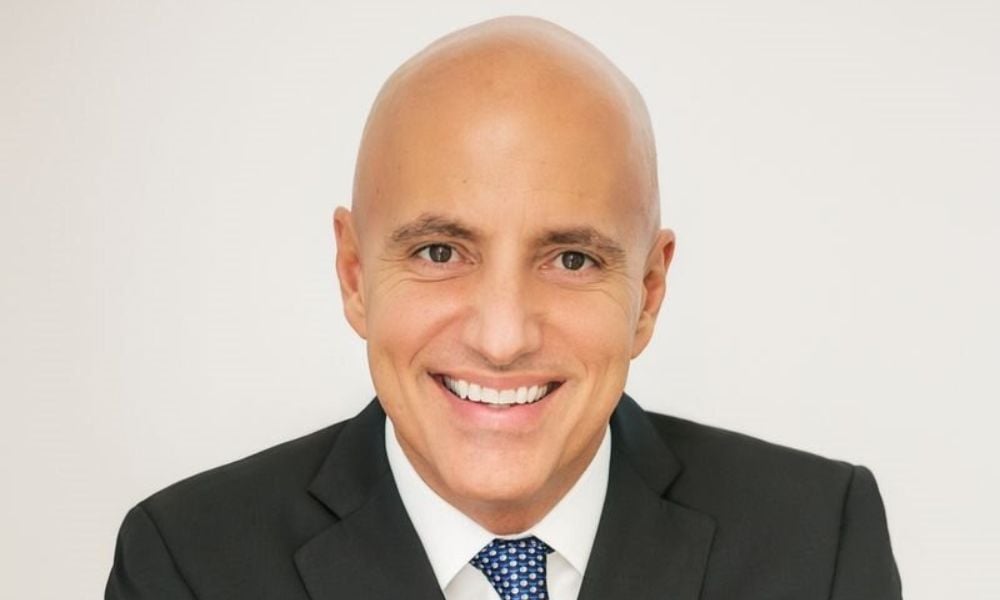Specialization is the future: How loan officers can stand out by solving pain points

The mortgage industry is facing a critical juncture as its workforce ages, and new talent struggles to break in amid growing regulatory demands. According to Eric Mitchell (pictured), Chief Revenue Officer of Client Direct Mortgage, a veteran in the field, the average age of an originator is now more mature.
“The average age of an originator is 55-56 years old," he said, underscoring the sector's aging workforce and lack of new entrants. For Mitchell, the challenges of entering the industry have grown exponentially with increasing regulatory demands, licensing, and compliance requirements.
"It's just getting harder," he said. "It's a good thing for the consumer because the consumer should be treated by somebody who knows what they're doing."
Mitchell isn’t sentimental about the industry's past. He contrasts today’s rigorous processes with his early experience in 1999, where he was handed a phone and told to "go get a loan." Training, at that time, was minimal, and standards were loose. Now, while the job is more difficult, it’s also more professional. However, Mitchell is quick to point out that the coaching and teaching inside the mortgage space haven’t kept pace with the changes.
“The methodologies that are being coached are 30-40 years old,” he added.
One area where outdated thinking still prevails, Mitchell argued, is in the emphasis on relationships.
"If you think making a living in mortgages is all about relationships, I already know you're broke," he said bluntly. "How do you sustain an effective relationship if you're not valuable?"
In Mitchell's view, being valuable means understanding what others define as value—not the other way around.
“I don’t define how I’m valuable to you,” he said. “You define how I’m valuable to you, and I can either live up to that, or I can’t.”
Mitchell’s approach challenges the common notion that providing good service, being accessible, or helping with marketing are differentiators.
“Those are the bare minimum expectations for you to be in business,” he said. They are not, in his view, compelling reasons for someone to switch from their current loan officer.
He likens this to a grocery store saying, "We sell milk." It's expected, he argues, just like competitive rates and good service in the mortgage industry. "They're not reasons I’m going to send my clients to you,” he said.
Instead, the key to success is the ability to "reciprocate" value. For Mitchell, this means offering something beyond the basics that others aren’t providing. His strategies focus on becoming valuable to professionals outside the mortgage industry, such as financial planners, CPAs, and attorneys.
"How do you be valuable to financial planners, CPAs, insurance agents, bankruptcy attorneys, immigration attorneys, divorce attorneys, builders, condo developers?" he asked, emphasizing the importance of specialization and finding ways to pre-approve buyers and hand them off to realtors, thereby creating reciprocal value. His approach is rooted in the idea that if you can provide unique value to these professionals, they will, in turn, refer clients to you.
Outdated strategies
One of the more controversial coaching strategies Mitchell addresses is the notion that loan officers should cold-call realtors every Monday morning.
"You have to call 50 new Realtors every Monday morning," he said, quoting a well-known coaching company. But he scoffs at the suggestion.
"You're asking me to commit mental suicide, emotional suicide," he said, citing the crushing rejection such an approach would generate. Mitchell’s disdain for cold-calling mirrors his broader rejection of outdated techniques, which he likens to using "a horse and buggy" when better options are available.
Mitchell is equally critical of door-knocking as a strategy, calling it outdated and intrusive. He draws a vivid comparison.
"Can you imagine... you're at home having dinner with your family, and somebody knocks on your door, and it's an attorney?" He mimics the hypothetical attorney saying, "Hey, I heard some yelling in the house last night. I'm a divorce attorney. Just wondered if my services could be valuable to you."
Instead of relying on such antiquated methods, Mitchell advocates for a more sophisticated approach—one that focuses on understanding the pain points of potential referral partners.
“Before you go into the meeting, know the pain ahead of time,” he said, explaining that professionals like financial planners have very specific concerns that can be addressed with the right mortgage solutions. For instance, many financial advisors face the issue of clients wanting to cash out their investments to buy real estate. Mitchell suggests offering a solution that allows clients to leverage mortgages instead of cashing out, thereby preserving the advisor’s commissions.
"If only they knew a lender that could lend on investment properties with no tax return,” he added, positioning himself as that solution. Specialization, Mitchell believes, is the future of the mortgage industry.
"I believe the economy of the future is all about specialization,” he said, urging professionals to focus on becoming the best at one thing, rather than trying to be a jack of all trades.
Mitchell's approach is rooted in providing tangible, unique value to professionals across various industries. It's about moving beyond the basics and old-school methods to develop meaningful, reciprocal relationships. The mortgage industry, as he sees it, is evolving, and those who don't adapt to the new realities of value and specialization risk being left behind.
“If you can zero in on one or two,” he said, “you’ll walk into their offices once or twice a month, and if you don’t, they’re somebody else’s prospect.”



